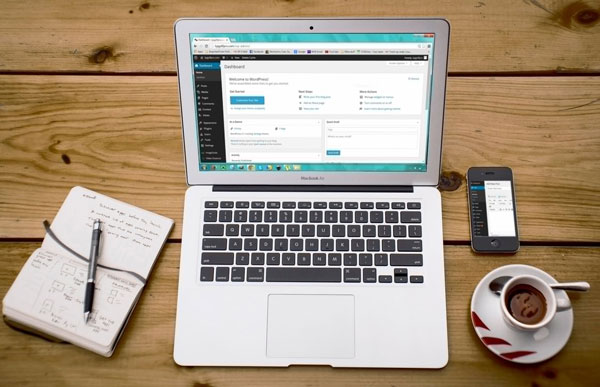Website builders have become very popular over the past few years. They say they can build you a great looking website in a matter of minutes, and at a very low cost. So what’s the catch? Just like any tool, there are pros and cons, depending on your needs. For some, a website builder will be the perfect tool. For others, they won’t be the right fit. Here’s what you need to know about the pros and cons of websites builders in order to decide if they are right for you.
The Benefits of a Website Builder
First, let’s go over why someone might want to use a website builder. There are two main advantages to using one of these tools. The first is that they are easier to use. If you don’t know how to code websites – using CSS, HTML, Java, PHP and more – then trying to create one on your own is very difficult. You’d have to learn these skills, then become good enough at them to produce a website you’re happy with. It’s a difficult and time consuming process, which is why many people turn to website builders.
Second, there’s the cost. If you don’t know the above skills, your other option is to hire someone. This person will work with you to get the website exactly as you want it. However, hiring a web designer isn’t cheap. You may have to spend hundreds, or even thousands, of dollars in order for someone else to complete your website. Website builders, on the other hand, are affordable, and in many cases free. If you don’t have a large budget to work with, website builders are an attractive option.
The Drawbacks of Using a Website Builder
So, website builders are easier to use and cheaper than hiring a web designer. But if they’re so great, why isn’t everyone using one? What are the drawbacks?
For starters, there are usually limits to what you can do with a website builder. While it’s fine if you just need a simple website, if you need something more complicated, you may not be able to get it through one of these tools. As an example, you cannot get an SSL certificate through some website builders, meaning your website might not be secure. You may also be limited in the number of pages you can create, the features you can add to it, or some of the design elements. It will all depend on the website builder and how much you’re willing to pay.
Speaking of costs, for many website builders, there are often some hidden costs. The website will advertise the tool as free, and once you get far enough along in the building process, you realize some key features cost extra. Maybe you want to have more than 5 pages, but to do so you’d need to upgrade to a more premium package. Now that great deal you thought you found doesn’t seem so great. Before you decide which website builder you want to go with, it’s important that you do your research and learn all of the costs beforehand.
Finally, you might have to deal with advertisements on your website. In order to offset the costs, many website builders will let you use their product for free, but in exchange you need to put an ad for them on your website. If you don’t want to promote their product on your website’s homepage, you may need to find another tool to use.
Choosing a Website Builder

If, after weighing the pros and cons, you’ve decided that you want to try a website builder, there are a few things you should consider when comparing your options. First, you’ll want to know all of the costs. This includes what comes with the free service, what the premium packages look like, and if they require an ad on your website.
Next, look at the features that are available. What sort of designs do they offer, and do they fit what you had in mind for your website? Can you do things like create an online store, collect email addresses from your customers, or have as many pages as you want?
Finally, if the website builder is attached to a specific host, you’ll want to research that hosting provider. Getting the best website hosting is important to ensure your website runs well. You don’t want to be stuck with bad hosting just because you like their website building tools.
Each website builder is different and will come with their own pros and cons. The best thing you can do is consider each and see which one best suits your needs. For example, the best website builder for small businesses might not be the best for a personal blog. Some of the more popular options for website builders are:
– WordPress
– Shopify
– Squarespace
– Weebly
– Wix
-GoDaddy Website Builder
In the end, whether or not you use a website builder is up to what you need. If you have a very specific vision in mind for what your site should look like and do, you may want to do it on your own. On the other hand, if you’re on a tight budget, and don’t need anything too advanced on your site, a website builder may be of great advantage.































